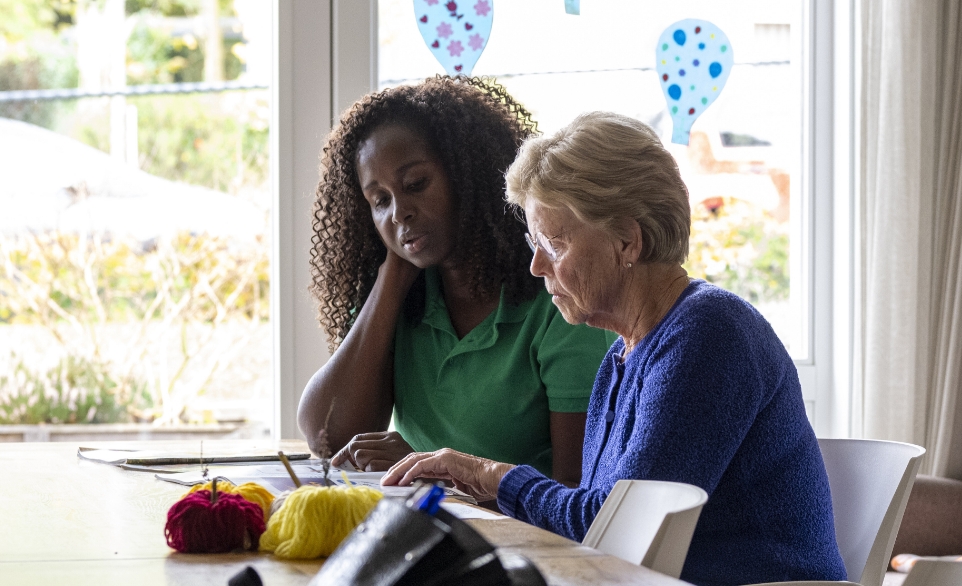
Great carers aren’t just kind — they’re calm under pressure, clear in their words, and confident in difficult moments.
Care work isn’t just physical. It’s emotional.
And some of the most challenging parts of the job have nothing to do with moving, washing, or dressing — they have everything to do with how we speak and how we respond.
Whether it’s a client who’s withdrawn or distressed, a family member who’s angry, or a colleague who’s being unfair — how you handle conversations can make all the difference.
In this blog, you’ll learn:
- What to say when emotions run high
- How to approach difficult topics with confidence
- The difference between assertiveness and aggression
- Helpful, printable scripts to keep your words calm, clear, and kind
Why Tough Conversations Matter in Care
The truth is: you’ll face them.
No matter how gentle or professional you are — emotions run high in care. People are vulnerable. Families are scared. You’re human, and sometimes under pressure yourself.
Being equipped with the right communication tools doesn’t just help others — it helps you. It protects your emotional wellbeing, your professionalism, and your boundaries.
Scenario 1: A Client Is Distressed, Angry, or Upset
What’s Really Going On:
- They may be in pain
- They may feel powerless
- They may be confused or triggered by something from their past
The key is to de-escalate, not defend.
Try These Phrases:
- “I can see this is really upsetting for you. Let’s take a moment together.”
- “You don’t need to explain everything now — I’m here to support you.”
- “It’s okay to feel frustrated. You’re not alone in this.”
Avoid:
- “Calm down.” (It rarely works and often inflames.)
- “You’re overreacting.” (It dismisses their experience.)
- “That’s not my fault.” (Even if it’s true, it builds walls, not bridges.)
Your tone matters as much as your words. Keep your voice low, slow, and steady — even if you feel tense inside.
Scenario 2: Talking to Family Members When You Feel Nervous
Family members can be:
- Overprotective
- Overwhelmed
- Distrustful of services based on past experiences
They may question you — and that’s okay.
You’re not there to prove anything. You’re there to communicate with calm confidence.
Try These Phrases:
- “I understand this must be hard to watch — I’ll walk you through what we’re doing.”
- “I know how much you care. I want to reassure you about today’s care plan.”
- “If there’s anything you’d like to raise, I can pass that on or talk it through with you.”
Pro Tips:
- Listen first. Most people want to feel heard before they’re ready to hear you.
- Stay professional — even if they’re emotional.
- If you’re unsure, offer to pass concerns to your team leader: “I’ll make sure this gets raised with [name] today.”
Assertiveness vs. Aggression
Being assertive means standing your ground without crossing someone else’s.
It’s a key leadership skill — and one that carers need daily.
Assertiveness Sounds Like:
- “I can’t stay past my shift today, but I’ll make sure a handover is in place.”
- “I’m here to help, but I need to speak without being interrupted.”
- “This situation is difficult, but let’s focus on what we can do right now.”
Aggression Sounds Like:
- “That’s not my job.”
- “I’m not dealing with this.”
- “You always do this.”
Assertiveness keeps the conversation productive.
Aggression shuts it down.
General Tips for Tough Conversations
- Breathe before you respond. One calm breath gives you space to think.
- Use “I” statements. E.g. “I feel concerned when…” instead of “You never…”
- Stay curious. Ask, “Can you help me understand what’s most important to you right now?”
- Pause, paraphrase, and repeat. E.g. “So, what I’m hearing is that you’re upset because the call was late today — is that right?”
Download: “Calm, Clear, Kind” — Printable Scripts
We’ve created a free downloadable resource with:
- Sample scripts for tricky moments
- Assertive phrases for setting boundaries
- Responses for emotional clients and families
- Self-check prompts to stay grounded in heated situations
Click here to download the Calm, Clear, Kind PDF
Stick it on your fridge, keep it in your shift bag, or screenshot it to your phone — it’s your daily guide to communication that protects you as much as it helps others.
Bonus: Watch the Communication Skills Videos in Our Free Carer Academy Playlist
We’ve included communication-focused content in our free Carer Academy Playlist — created specifically for frontline care workers like you.
Inside the playlist:
- Short videos on de-escalation and active listening
- How to stay calm when you feel under attack
- How to hold boundaries without guilt
- Real-world communication tips that build trust and respect
Click here to watch the playlist
Final Thought: You Can’t Control Reactions — But You Can Choose Your Response
Care will always come with emotion.
But when you handle those moments with calm, clarity, and kindness, you lead by example — and protect your peace in the process.
Tough conversations don’t get easier.
You just get better at having them.
With the right words and support behind you, you can hold space for others — without losing yourself in the process.
Ready to build your confidence even more?
Join Carer Academy and learn how to lead conversations that create calm, not chaos.
Download “Calm, Clear, Kind” now
You’ve got this — and we’ve got you.
With care,
Jill Hudson
Tutor, Carer Academy | Founder, Big Sister













